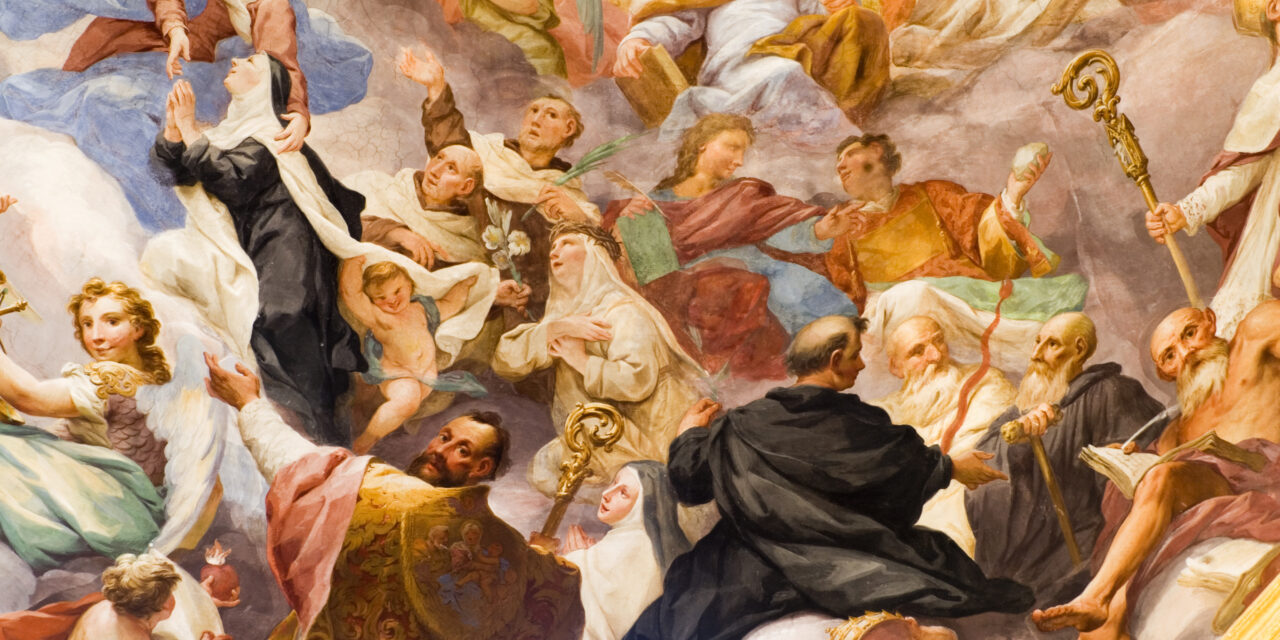A recent article in the left-wing publication Politico admonishes conservative Christians to “reconsider the premise that ‘life begins at conception.’”
Thank you for thinking of us, but we will do no such thing. But what we will do is provide reasons why orthodox Christians believe that life begins at conception.
Christian History
Bradley Onishi – a “former evangelical minister” who now teaches at the University of San Francisco – authored the piece in Politico. He claims the idea that life begins at conception is “not settled Christian theology, and it’s outliving its political utility.”
Mr. Onishi contends in the piece that influential Christian thinkers – like St. Augustine and St. Thomas Aquinas – believed that fetuses did not become persons until they were “ensouled.” That is, fetuses did not become alive persons until God infused them with a soul.
Therefore, Mr. Onishi argues, Christians today should recognize that there are varying beliefs about when life begins; because there are competing ideas, we shouldn’t be such sticklers about abortion. It’s a clever idea.
But there are two main problems with Mr. Onishi’s arguments regarding Christian history on this issue.
The ‘Ensoulment’ Contention Does Not Make Abortion Morally Permissible
First, we must grant Mr. Onishi’s general point that some Christian theologians throughout history – including St. Augustine and St. Thomas Aquinas – did speculate about when a preborn baby receives a soul (though they never questioned their humanity). It’s true that, in the case of Aquinas, he thought a preborn baby received its soul 40-80 days after conception; therefore, he thought abortion would only constitute “murder” after this point.
However – and this is critical to understand – Aquinas did not then proceed to acknowledge abortion as morally permissible prior to ensoulment. Aquinas argued that abortion, since it violates the natural law, is therefore always morally wrong no matter when a soul may be infused into a preborn baby’s body. The same is the case with St. Augustine.
This brings us to our next point.
The Early Church Universally Condemned Abortion
Despite debates over ensoulment, the early church and the church in the Middle Ages – reflecting on writings from Scripture and using human reason – unanimously condemned abortion as morally wrong.
For example, one of the earliest extra-biblical Christian writings we have is called The Didache (pronounced did-a-kay). The writing was seen by the early Christians as authoritative; it was most likely written in the first century and is also called “The Lord’s Teaching Through the Twelve Apostles to the Nations.”
The Didache plainly states,
You shall not murder a child by abortion nor kill that which is begotten.
In other words, the idea that abortion is morally wrong and is akin to “murder” was a Christian teaching universally held from the very beginning of Christianity.
In 1974, the Sacred Congregation for the Doctrine of the Faith – the Catholic Church’s main doctrinal teaching office – issued the Declaration on Procured Abortion. It helpfully summarizes 2,000 years of Christian thinking about the abortion issue:
In the course of history, the Fathers of the Church, her Pastors and her Doctors have taught the same doctrine – the various opinions on the infusion of the spiritual soul did not introduce any doubt about the illicitness of abortion.
It is true that in the Middle Ages, when the opinion was generally held that the spiritual soul was not present until after the first few weeks, a distinction was made in the evaluation of the sin and the gravity of penal sanctions. Excellent authors allowed for this first period more lenient case solutions which they rejected for following periods.
But it was never denied at that time that procured abortion, even during the first days, was [an] objectively grave fault. This condemnation was in fact unanimous.
Mr. Onishi suggests that early Christians didn’t all agree when life begins. That’s true. But contrary to Mr. Onishi’s claim, it’s not the case that early Christians had divided opinions on abortion. They unanimously condemned it, and in very strong language. They all agreed that abortion – at all stages – was a moral evil. And in fact, “murder” was a word they often used in describing what abortion does.
So, it’s not early Christians who were confused on the abortion issue – it’s modern Christians (like Mr. Onishi) who are too often confused.
For further reading about the early church’s universally held belief that abortion is morally wrong, check out The History of Christianity and Abortion.
Also, you can purchase author Randy Alcorn’s book Prolife Answers to Prochoice Arguments; you can also read Scott Klusendorf’s book The Case for Life: Equipping Christians to Engage the Culture.
Focus on the Family has been working to turn the cultural tide and save mothers and babies from abortion for years. Since beginning the Option Ultrasound Program in 2004, Focus has helped save nearly half a million lives.
Our goal is to save one million babies by 2025. Just $60 will save a life through Option Ultrasound. Will you partner with us to save a life from abortion here?
Additionally, if you are experiencing an unexpected pregnancy and want to learn more about your options, you can visit My Choice Network here.
Related articles and resources:
Dealing With Unplanned Pregnancy
Become an Option Ultrasound Life Advocate
The History of Christianity and Abortion
What Does the Bible Say About Abortion?
Prolife Answers to Prochoice Arguments
Photo from Shutterstock.






